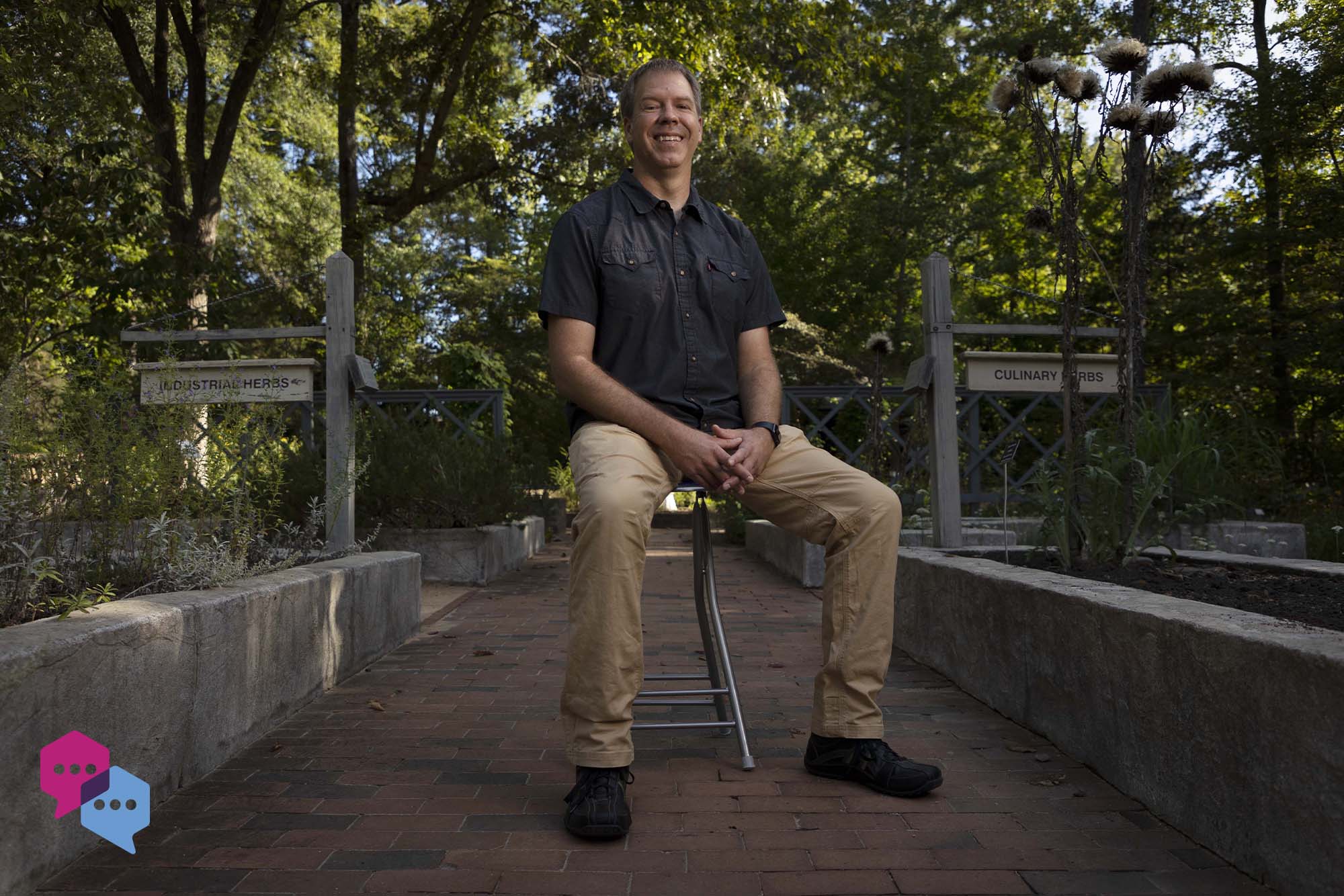Mike Kunz is a conservation ecologist at the North Carolina Botanical Garden and a PhD student in the Environment, Ecology, and Energy Program within the UNC College of Arts and Sciences. He studies the patterns and processes that create rare species and how to use that knowledge to stop extinctions and preserve biodiversity.
Q: How did you discover your specific field of study?
A: I always enjoyed plants as a kid, from gardening with my mom, to camping and hiking in the mountains and grasslands of Colorado. But it was really an undergraduate botany class where all the pieces came together. The professor, Jane Bock — a great ecologist and teacher — shared her passion for plants from day one, and within the first few classes I had found I really connected with plant ecology and conservation. She ended up being my mentor and advisor.
The loss of biodiversity has always been at the heart of my interest. Initially, I was more involved in invasive species work, but after I started my current path at the North Carolina Botanical Garden, I really began to shift and become interested in the plight of rare plants. This was something I was always acutely aware of, but Johnny Randall here at the Garden really gave me opportunities that fostered my interests in why plants are rare, what is making them disappear, and most importantly, what we can do about it.
Q: Academics are problem-solvers. Describe a research challenge you’ve faced and how you overcame it.
A: For one of the current projects in my dissertation research, I am looking at the reproductive ecology of a rare plant, specifically why there is very little seed produced. Following observations and what we saw in the demographic data, I began focusing on biotic interactions and working with the plants and pollinators. After weeks and weeks of long days doing painstaking hand pollinations at multiple sites across multiple years, I had mostly zeros in my dataset. So many zeros!
To work through this challenge, I found some colleagues who are great with statistics to help me with my zero problem. Then, I took it as an opportunity to step back, reassess, and discuss new ways to look at the problem. I came up with a new set of questions to design additional experiments. I try to apply this to many challenges to conserve rare plants. It is really the practice of adaptive management: Try something and see what parts work and which don’t, then use the information to adjust and tweak plans and keep trying.
Q: Describe your research in five words.
A: Extinction? Not on my watch.
Q: Who or what inspires you? Why?
A:Nature. There is a certain peacefulness in being outside that clears my mind and invigorates my curiosity. I find it at the landscape level in experiencing beautiful and fascinating places, to the minute details of the complex interactions between organisms and their environment. How amazing is it that even when we think we know a place we walk often, we find we really know so little about the way all the pieces work, not to mention how they are constantly changing. It is all so fascinating and motivating.
Q: If you could pursue any other career, what would it be and why?
A: I like to cook. It is the level of creativity combined with the details of preparation and precision of execution that I like. And getting to share it with others is rewarding. Not all that different than some of the things that attract me to science, I guess, but definitely better eating than a field lunch left in the hot sun all day.


